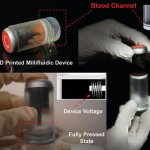
News • Millifluidic nanogenerator
Blood-powered lab-on-a-chip to enhance disease monitoring
Researchers are proposing a new device that uses blood to generate electricity and measure its conductivity, opening doors to medical care in any location.

Researchers are proposing a new device that uses blood to generate electricity and measure its conductivity, opening doors to medical care in any location.

The field of lab-on-a-chip needs to meet important challenges around sustainability. This includes not only the development of smart analytical systems that are able to sense the changes that are occurring within the environment but also, more generally, the mitigation of single-use plastics in analysis and the use of low-power, recyclable microsystem technologies.
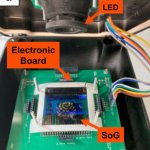
Over the last 20 years, the development of lab-on-a-chip (LoC) devices for performing real-time PCR (LoC-PCR) has been an active research field. Now, Italian researchers present their design for a new lab-on-a-chip-PCR device.
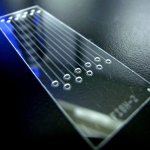
Faster, more accurate and cost-effective testing: Experts outline the beginnings and evolution of “lab-on-a-chip” technology, and its benefits for advanced and next-gen operational platforms.

With the rise of syndrome-style infections, co-infections and the current antimicrobial resistance challenges, the need for multiplexed diagnostics is now more important than ever.

The coronavirus pandemic caused by SARS-CoV-2 and its variants is still a major public safety issue worldwide. The “alpha” variant B.1.1.7, the “gamma” variant P.1, the “beta” variant B.1.351, and the “delta” variant B.1.617 are of particular concern because of their high prevalence. Large-scale vaccination and sensitive detection are vital for preventing the spread of Covid-19.

Researchers developed a new microfluidic chip with broad applications for detecting viruses, pathogens, bacteria and other biomarkers in liquid samples.
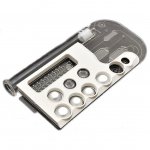
The Corona pandemic has a major impact on all areas of life. Nearly everyone is affected in some way – in their health, in their jobs, in their entire lives. But there are also notable bright spots. Chief among these effects is the rapid development of vaccines, test kits and, in the future, medicines that are making a significant contribution to overcoming the crisis. Microfluidic components…
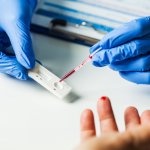
Considerable advances in point-of-care testing (POCT) devices are emerging from lab-on-a-chip platforms, innovations in smartphone-based technology and wearable technology. Cloud-based deep learning systems herald a future revolution.
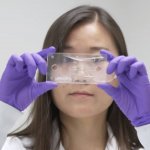
Integrating laboratory functions on a microchip circuit is helping improve the cost-effectiveness of drug development. So-called ‘lab-on-a-chip’ or ‘human-on-a-chip’ technology can highlight which treatments may, or may not, work before advancing along the clinical trial process. It can also have benefits for chronic and rare diseases, as well as helping shape personalised medicine.…
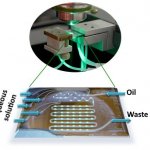
Analytically sensitive and specific detection of pharmaceuticals or metabolites in bodily fluids, as well as fast and reliable detection of human pathogens, are major challenges for instrument-based analytics in medical diagnostics. Over the past few years the combination of surface-enhanced Raman spectroscopy (SERS) and microfluidic devices (Lab-on-a-Chip) has emerged as a perfectly suited…

To simulate the blood circulation and the organs of animals or humans, engineers from Fraunhofer in Dresden have developed a so-called "multi-organ chip". This microsystem from the Fraunhofer Institute for Material and Beam Technology IWS Dresden has now received an "EARTO Innovation Award" in Brussels. The "lab-on-a-chip" will help industry to develop new drugs and…
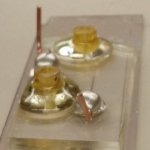
Lab-on-a-chip devices harness electrical signals to measure glucose, discern blood type and detect viruses or cancer. But biological samples need hafnium oxide for protection from electric fields.
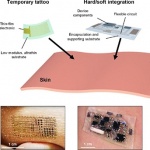
Move over, lab-on-a-chip and lab-on-paper. There’s a new diagnostic technology in research labs that is gaining credibility. It is called lab-on-skin technology and some scientists are quite excited about how it might be used for a variety of clinical purposes. A recent story published in ACS Nano titled, “Lab-on-Skin: A Review of Flexible and Stretchable Electronics for Wearable Health…

With MEDICA 2017 drawing ever nearer, Joachim Schäfer, Managing Director of Messe Düsseldorf GmbH, sets the stage with the following statement:

IBM scientists have developed a new lab-on-a-chip technology that can, for the first time, separate biological particles at the nanoscale and could enable physicians to detect diseases such as cancer before symptoms appear.

Insulin deficiency and hyperglycemia are two well-known culprits behind diabetes, both of which are reflected in blood glucose concentrations. Now, researchers are working to create ultrasensitive lab-on-a-chip devices to quickly measure glucose concentrations with the goal of developing device for early diagnosis and prevent of diabetes.

‘Never-before-seen breakthroughs in diagnostic research and technology’ were revealed during July’s American Association for Clinical Chemistry meeting in Chicago, where up to 20,000 people packed in for research updates.

New molecular technologies to screen drug-resistant TB are replacing, for example, culture-based tests that are slow, require experienced personnel, and need stringent microbiological safety precautions.
It is very difficult to predict whether a cancer drug will help an individual patient: only around one third of drugs will work directly in a given patient. Researchers at the Heinz Nixdorf Chair for Medical Electronics at the Technische Universitaet Muenchen (TUM) have developed a new test process for cancer drugs. With the help of microchips, they can establish in the laboratory whether a…
A new lab-on-chip system, the ivD-platform, which quickly determines, on site, the contents and parameters of biological samples, such as blood or saliva, with the help of immunoassay or DNA analysis, was presented at Biotechnica this autumn.
Researchers funded by the European Union have devised OptoLabCard, a system that prepares samples and performs DNA tests on bacteria in a portable, easily used, cost-effective lab-on-a-chip.

Engineers from the University of Michigan are seeking to develop a "lab-on-a-chip" kit that people can assemble on their own. It could bring a new generation of instant home tests checking out for illnesses, food contaminants and toxic gases.

Wilhelm Niedergoeker, Managing Director of the Messe Dusseldorf GmbH, previews this year's events.

12 distinguished researchers and industry representatives presented the latest molecular medicine research at the Molecular Medicine - from Diagnostics to Therapy symposium - one in a series of annual diagnostics seminars organised by the Forum Medicine Technology & Pharmaceutics e.V.

It occupies approximately the same space as one to three atoms.
Due to economic pressure, laboratories increasingly consolidate and automate procedures. Further cost reductions could come about through miniaturisation and multi-parameter tests.